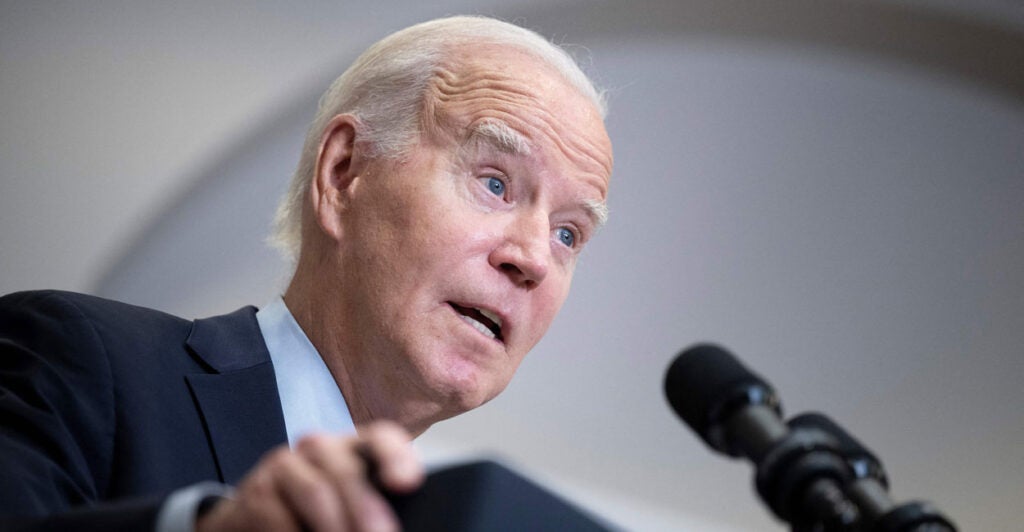The House of Representatives on Thursday passed a bill that would repeal the student loan plan issued by the Biden administration after its original plan was ruled unlawful by the Supreme Court.
The Saving on a Valuable Education (SAVE) plan was issued by the Department of Education on July 10, less than two weeks after the Supreme Court struck down the administration’s plan to forgive $10,000 of student debt held by all borrowers making less than $125,000 a year.
House Republicans, who have opposed all student debt forgiveness plans by the administration, passed a bill that would repeal the SAVE plan on Thursday, by a vote of 210 yeas to 189 nays.
“The only difference between President [Joe] Biden and a snake oil salesman is a title. Biden’s administration knows what it’s doing is illegal but it’s pushing forward anyway, promoting its SAVE scheme as a solution to America’s broken student loan system. In reality, the SAVE scheme is a desperate effort to curry favor and buy votes ahead of the next election,” wrote Republican Reps. Virginia Foxx of North Carolina and Lisa McClain of Michigan, the principal sponsors of the bill, in a joint statement.
“This scheme will leave mountains of debt at the feet of taxpayers while absolving millions of borrowers of their loans. What’s worse is that future borrowers will take on loans expecting forgiveness, which in turn encourages schools to raise tuition rates.”
The idea that American taxpayers should bear the burden of student loans from individuals who willingly accepted them is absurd, and I will not stand by as the Biden Admin continues to push its unconstitutional student loan forgiveness program. pic.twitter.com/WvrJdMeqbR
— Congressman Nathaniel Moran (@RepNateMoran) December 5, 2023
The SAVE plan would limit student loan repayments to 5% of a borrower’s discretionary monthly income, which is currently limited to 10%, and would forgive balances that were $12,000 after 10 years.
“This income-driven repayment plan will cut borrowers’ monthly payments in half, allow many borrowers to make $0 monthly payments, save all other borrowers at least $1,000 per year,” wrote the White House in a statement about the plan.
The plan will also suspend monthly interest on the unpaid balance of loans, provided that a borrower makes their payments on time. It also raises the amount of income that can be classified as “discretionary” to 225% of the federal poverty level, which would cover most borrowers in occupations making $15 an hour.
Unlike Biden’s original plan, which cited authority from the Higher Education Relief Opportunities for Students (HEROES) Act of 2003, the new plan has been made pursuant to the Higher Education Act of 1965, which circumvents the Supreme Court’s administrative law ruling in Biden v. Nebraska against the former plan. It modifies two federal loan programs, the William D. Ford Federal Direct Loan Program and the Federal Family Education Loan Program.
Foxx and McClain’s resolution was introduced under the Congressional Review Act, a statute that allows Congress to overturn regulations passed by the executive branch. In the Senate, CRA joint resolutions are not subject to a filibuster, which would enable the bill to pass both houses of Congress provided that 51 senators support it.
“The SAVE plan is already helping close to 5.5 million Americans … ,” wrote the Biden administration in a statement. “If the President were presented with H.J. Res. 88, he would veto it.”
Have an opinion about this article? To sound off, please email letters@DailySignal.com and we’ll consider publishing your edited remarks in our regular “We Hear You” feature. Remember to include the URL or headline of the article plus your name and town and/or state.
